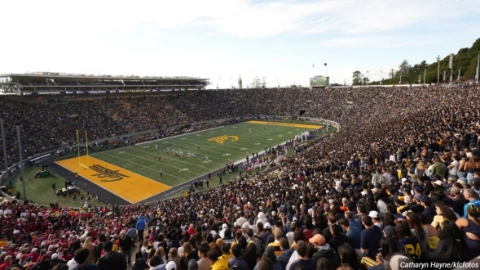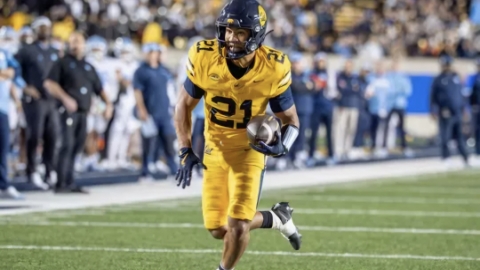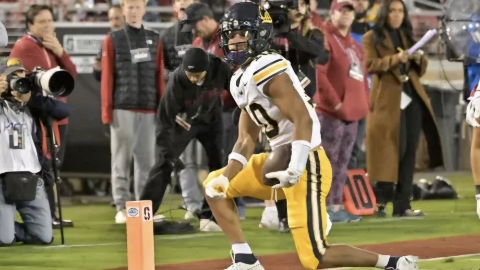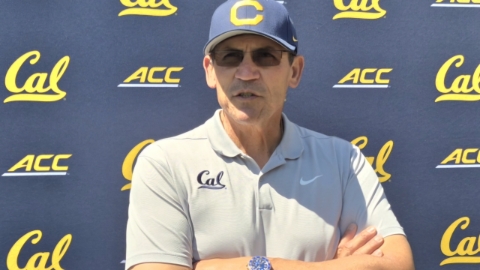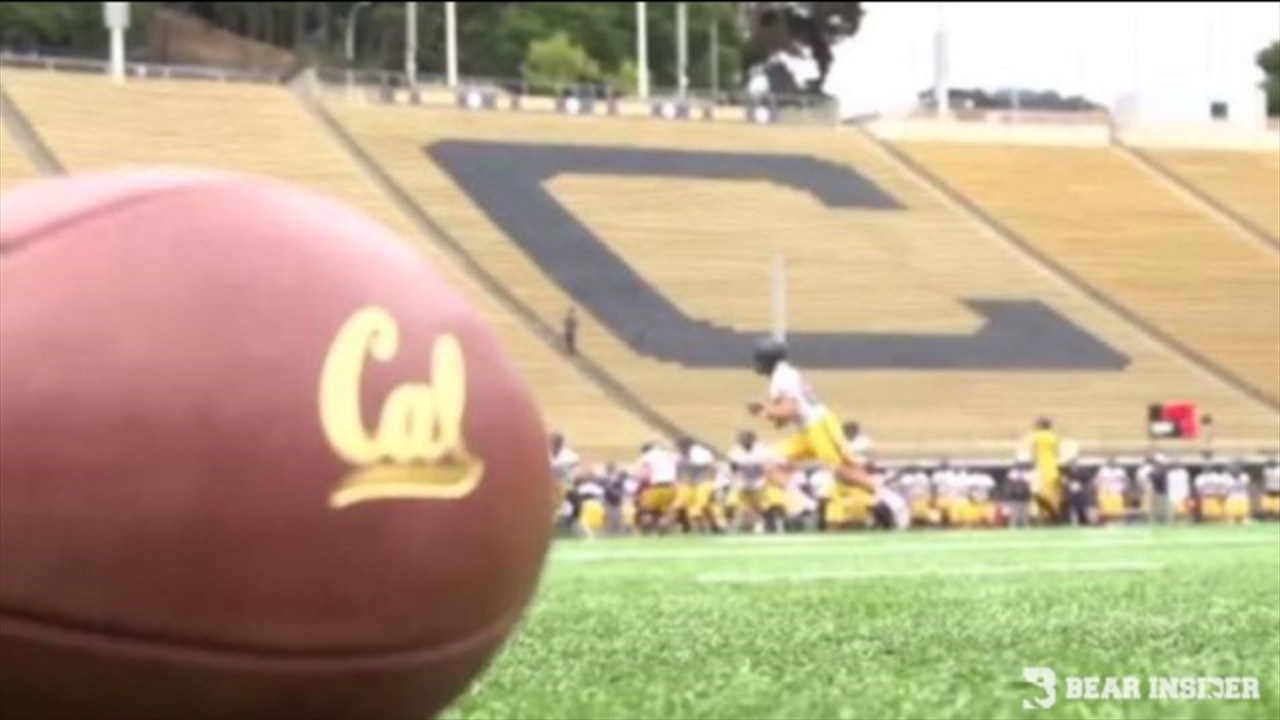
The Cal football program finds itself in a tough position and at a crossroads with the City of Berkeley Department of Public Health enforcing a 14-day quarantine for a player who tested positive for COVID-19 as well as the rest of his defensive line teammates along with some other players on the roster, as well.
The quarantine forced a cancellation of the team’s home opener last weekend against Washington and has put the team in serious jeopardy of missing their second consecutive game to start the season with no progress on the quarantine front with the COB as of yet.
The program has looked at multiple options but nothing as of yet has stood out as a clear path forward. In conversations with Cal’s AD Jim Knowlton, Bear Insider has learned more about the details of what is taking place.
One issue is that Alameda County currently has a very low transmission rate and other potential practice and game sites largely have higher rates of transmission and infection -a scenario that if there should be further infections on the team could prove to be especially problematic on several fronts.
One of the options for the team was to leave early for Arizona and practice there well before the game, however, that situation is problematic, with the Bay Area having a 2.5% positive testing rate vs. nearly 20% in Arizona. Other closer options have been explored but have logistical and other problems, though the athletic department is still exploring more options.
Cal AD Jim Knowlton feels that the Cal program has the safest and most conservative set of safety protocols in the country. They do not use the locker room, they lift weights outside and all their position group meetings are outside and socially-distant. They eat outside with takeout lunches and they test for covid daily with their antigen tests that not only test for the presence of the virus but also read any trace levels of infection.
The Cal program isn’t the only program dealing with this problem. Four SEC games, affecting eight total teams in just one conference have already been cancelled this week. In the Pac-12, Utah and Arizona had their game cancelled along with Cal last weekend with a fairly large outbreak for the Utes. Stanford, UCLA, Washington State and Oregon State also played games where players had multiple positive covid tests, as well.
Knowlton’s, as well as the players and coaches’ desire is to move forward and play this weekend and end the quarantine for all of the players sequestered for contract tracing after having consistently tested negatively in daily antigen tests. His and the program’s first priority is the health and safety of the players and program and they have done their part.
Knowlton’s position is not to play doctor and advocate for injured players to play. To not play coach and tell the staff how to run the team and to not play politician and tell the state and city how to run their business and make decisions on behalf of the public, which would surely not be successful if he tried.
He feels it’s his job to be an advocate for the program, to create the most advantageous working conditions possible, to be a willing ear for his programs’ concerns and to do everything possible to pave the way for the success of the athletic programs. He feels he’s been clear in showing public health officials the careful protocols the football program have in place and have been carefully adhering to on a consistent basis.
The City of Berkeley is now hiding behind their interpretation of the rules. To show flexibility and take into account the number of days Cal’s players have tested negative as well as the extreme steps the program is taking to keep players healthy, would in their minds leave them vulnerable to criticism if more players were to get COVID. Far “safer” from their perspective to not apply common sense and see the big picture, instead they can simply cite the rules and avoid further comment.
The program feels like there should be other considerations, particularly considering how they’ve gone above and beyond with their safety protocols and daily antigen testing. The quarantined players have now tested negative for 10 days and with the specificity and accuracy of the daily antigen tests, that should be more than adequate to ensure the safety of the team and the health of the players in question.
Knowlton has been in constant touch with city officials, though from the outside looking it, it appears that the city is hiding behind the rules to protect themselves on the outside chance that there are further infections to the team that would put others at risk.
It is our contention at Bear Insider that the program has been safe and responsible to the highest degree and with that in mind, along with the fact that they’ve tried their utmost to work with the city in good faith, the players should be released from quarantine and closely monitored with a return to practice, with this weekend’s game played a day later on Sunday (one of Knowlton’s ideas) to give the team at least a modicum of time to integrate the quarantined players back into their gameplan.
They owe it to the players. They owe it to the staff. They owe it to the players’ families, who know the program is doing everything humanly possible to keep their sons safe and healthy. And they owe it to their long-suffering fan base, who have waited a long ten and a half months to see their beloved Bears take the field this weekend.
Taking aside the City of Berkeley, the question for Cal is whether they have pushed hard enough to find a solution that avoids the COB’s jurisdiction. Are they showing the same commitment to the program that fans, donors, the staff, and players clearly have? The player’s health and safety AND the ability to play the game this weekend do not feel like mutually exclusive options. It’s hard not to feel that Cal is somehow viewing this situation through a lens that is different from every other college and professional football program in the country.
If indeed, the ASU game is canceled because of the COB, there can not help but be hard feelings from the Cal faithful and potential implications to the program’s future recruiting, staff retention, and ongoing donor and fan support.
